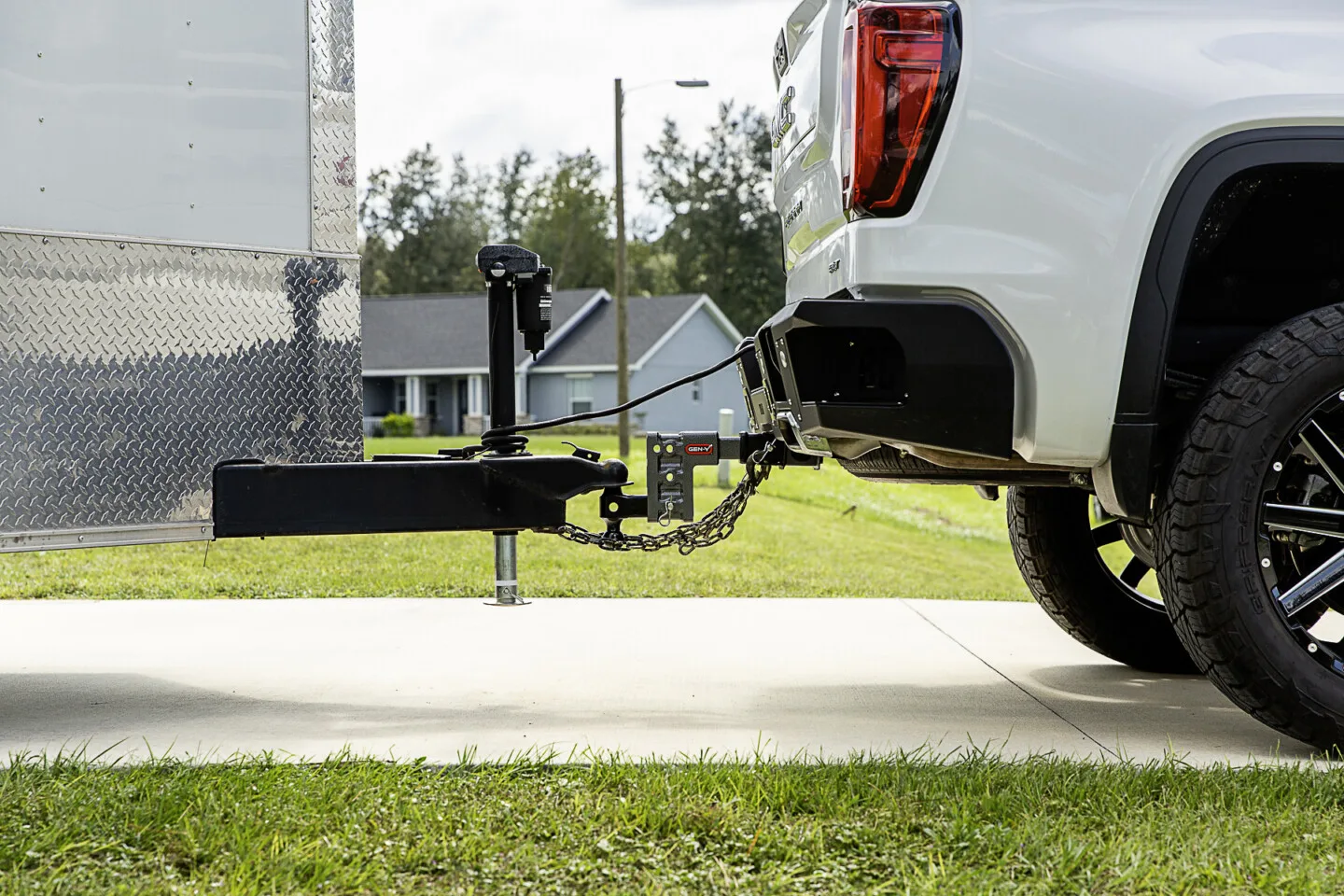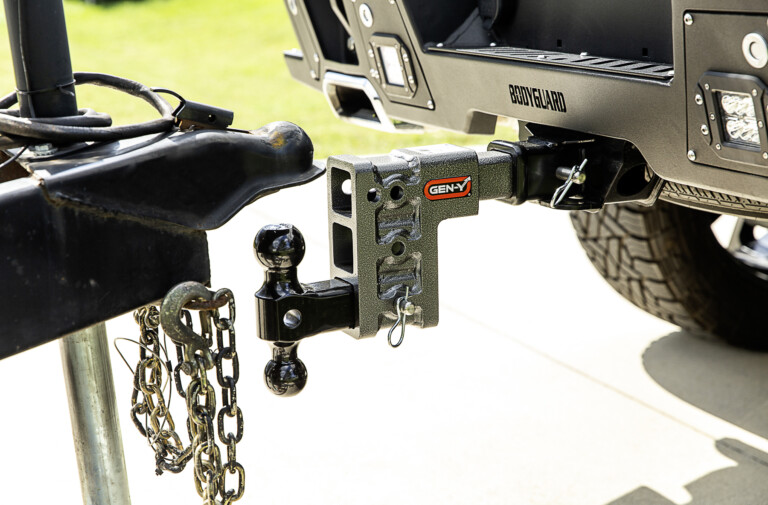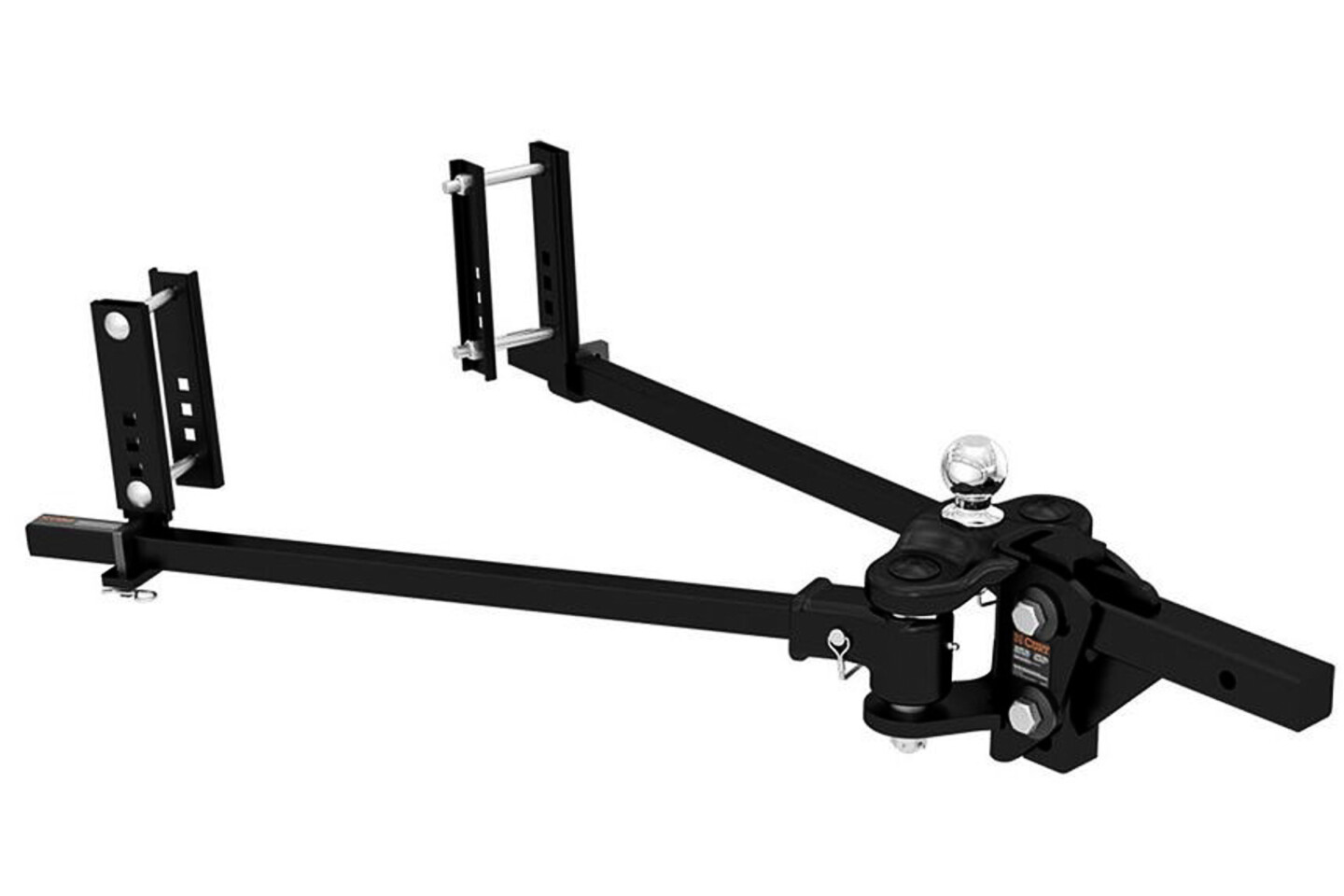Are you using the right trailer hitch for your tow rig? Hitches aren’t one size fits all, and if you aren’t using the right hitch it could lead to some serious issues. We talked with Jason Jones from RealTruck to get a quick education on bumper pull hitches and how to pick the right one for any application.
To set the table, you need to know what Gross Trailer Weight (GTW) and Tongue Weight (TW) is when it comes to hitches. GTW is the weight of a trailer when it’s fully loaded and it includes the weight of the trailer itself. The TW is the force applied at the vehicle-trailer connection point. These are the two most important hitch measurements you need to keep in mind when shopping for a hitch. They need to be in line with what your tow vehicle can handle as well.
Bumper pull hitches are broken down into classes. Class I and II hitches are smaller units that are designed for cars or SUVs that want to tow light loads. Class III, IV, and V hitches have GTWs that range from 5,000 to 17,000 pounds and TWs that exceed 500 pounds. These are the hitches you typically see used on trucks and SUVs that pull car trailers.
Jones has some advice in regards to picking a bumper pull hitch.
“Remember that you’re limited by the lowest rated component. For example, if your hitch can handle 8,000 pounds, but your vehicle can only haul 3,000 pounds, you’re maxed out at 3,000 pounds. Once you have that figured out, you need to find the right class hitch. A load leveling hitch might be something you might look into as well depending on your setup and how it tows.”
So, what exactly is a load leveling hitch? These hitches include a mounting system that allows you to use torsion bars to assist with where the weight is placed.
“Anytime you have a lot of tongue weight is when I would recommend using a load leveling type of hitch. This is important because when there’s excessive amounts of weight on the rear axles of your truck it lifts the front. When the front is lifted steering and braking can be impacted. It can also cause a rougher ride since your rear springs would be heavily compressed. Load level hitches really help to mitigate these issues and will improve how your truck tows,” Jones says.
To sum things up, you want to make sure the hitch you select is rated for the load you’re going to try and tow. If the nose of your truck is trying to kiss the sky a load leveling hitch could help even things out. The last thing you want to deal with are…
Click Here to Read the Full Original Article at DragzineDragzine…




